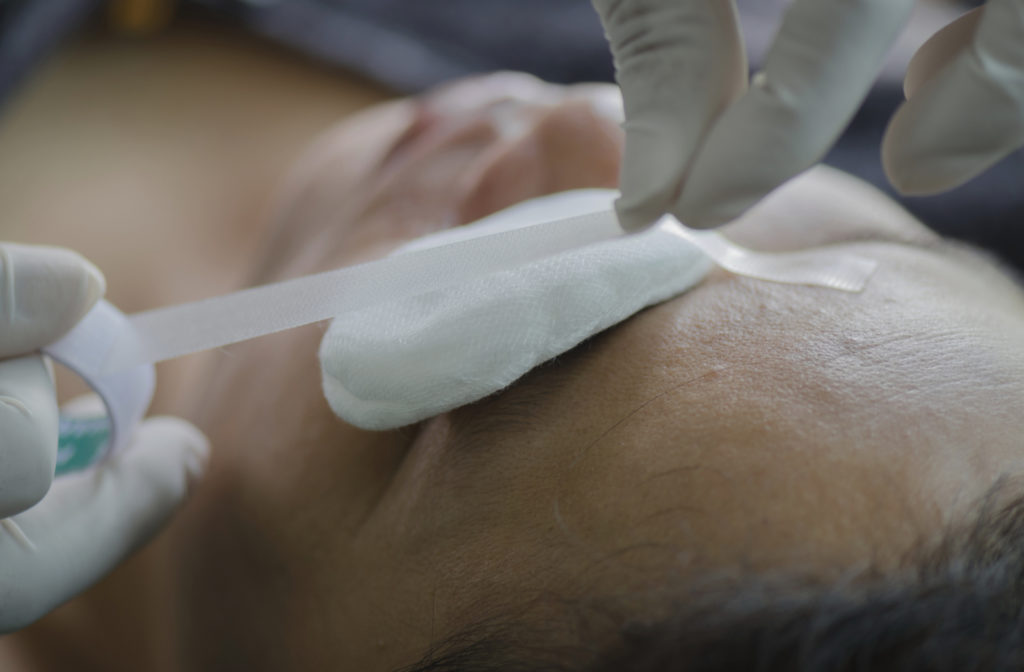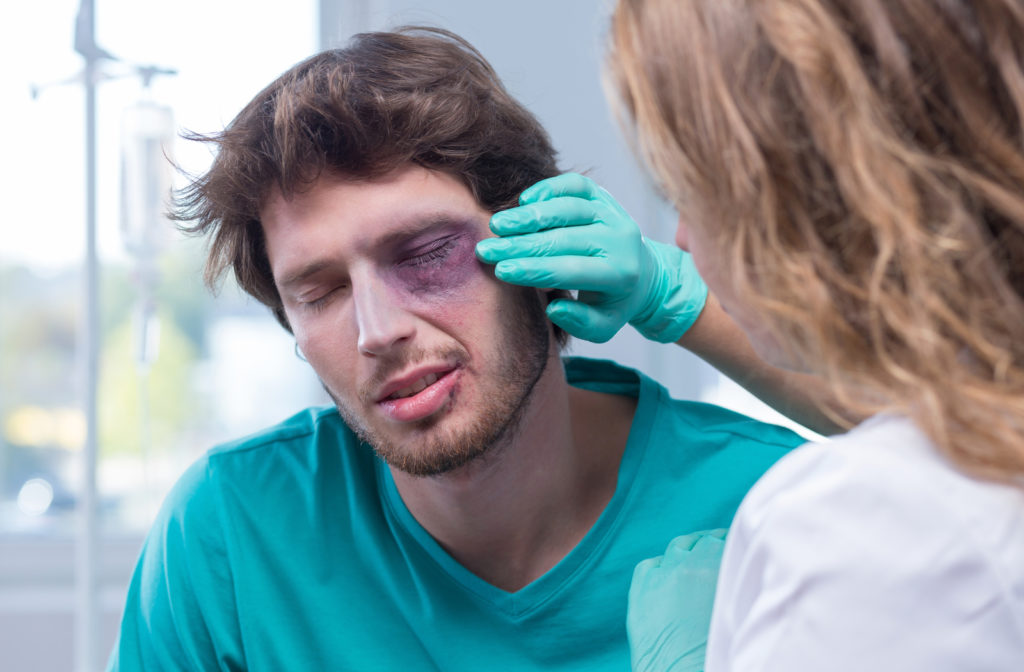Emergencies happen from time to time, and the important thing is that you see your optometrist as soon as you can. Timely medical attention can help protect your vision, but how do you know you have an emergency?
Continue reading to learn more about emergency eye care, including how to tell you need to visit your optometrist.
What is an Eye Emergency?
An eye emergency can cause severe and potentially permanent damage if not addressed. It’s important to visit a medical professional as soon as possible, but what determines an emergency?
Eye emergencies can include cuts, scratches, objects lodged in the eye, burns, blunt trauma, and chemical contact with your eyes or eyelids. Besides external injuries, certain eye diseases may require emergency treatment.
There is the potential for severe vision loss if an emergency is left untreated. If you’re having visual issues, how can you tell if your eyes require emergency care?
How to Tell You’re Experiencing an Eye Emergency
You may think that identifying an emergency is easy, but symptoms can be trickier than you think. Some things you may dismiss as a nonissue can mean a significant problem.
You should seek immediate medical attention if you experience any of the following. Even if it turns out there isn’t an emergency, it’s better to be safe than sorry.
Sudden Blurry Vision or Vision Loss
Blurry vision can happen if you have a refractive error like myopia or hyperopia, but sudden blurred vision is concerning. Not all instances of sudden blurry vision are emergencies but seek treatment regardless. Only your eye doctor can determine the cause of your blurry vision.
Sudden blurry vision can be a symptom of:
- Detached retina
- Concussion
- Stroke
- Hyphema
- Age-related macular degeneration
- Macular hole
- Eye infection
- Migraine
- Eyestrain
If you ever experience sudden vision loss, seek immediate medical attention. Don’t assume this issue will resolve itself—protect your vision by seeing your optometrist.
Eye Pain
Eye pain is a symptom of many different eye conditions, ranging in severity. This pain may go away on its own, but an assessment from your eye doctor can diagnose the underlying cause.
Some possible causes of eye pain include:
- Allergies
- Blepharitis
- Dry eyes
- Foreign object
- Glaucoma
- Eye trauma
- Conjunctivitis
- Stye
- Uveitis
You may experience eye pain by itself or with other symptoms. Seek immediate care if you experience pain alongside headaches, light sensitivity, nausea, discharge, or impaired vision.
A Sudden Onset of Flashes or Floaters
The occasional flash or floater is common, but a sudden onset of many is a cause for concern. Floaters are the small specks, dots, or cobweb-like shapes you see in your visual field. Flashes are flashes of light that appear in your visual field.
An unexplained increase in flashes or floaters means you should seek emergency care. They can be a symptom of a detached or torn retina.
Corneal Abrasion
A corneal abrasion is a scratch on your cornea. This injury can happen because of contact with dirt, dust, sand, wood, metal, contact lenses, and other materials. You may have a corneal abrasion if you’re experiencing:
- Pain
- A gritty feeling in your eye
- Watery eyes
- Redness
- Light sensitivity
- Headache
You require an assessment after scratching your cornea. In the meantime, you can rinse your eye with clean water to remove as much material as possible and blink several times to get rid of smaller particles.
Tunnel Vision
Tunnel vision, or peripheral vision loss, occurs when something affects your side vision. This condition happens when you can see straight ahead, but there are gaps in the sides of your visual field. You may have difficulty navigating through a crowd, bump into things, or fall over.
Tunnel vision may be temporary, but it can be a symptom of glaucoma or diabetic retinopathy. Both of these conditions can lead to severe vision loss, so seek immediate medical attention if you notice blind spots in your peripheral vision.
Chemical Contact to the Eye
Any chemical contact to your eye is concerning. You should visit your eye doctor for emergency care right away if this happens. Your eyes may be irritated and itchy, but don’t rub or put anything into them.
Before leaving for your optometrist’s office, rinse your eyes as much as possible to remove chemical residue. You can use the following steps:
- Flush the eye with water for at least 20 minutes using a tap, shower, or eyewash station
- Wash your hands with soap & water to remove any leftover chemical residue
- Remove your contact lenses if you’re wearing any
A Foreign Object in the Eye
Different materials can become lodged in your eye. Some may be irritating but harmless, while others may put your vision at risk. You can attempt to remove any small objects by flushing your eye with water.
Use caution when dealing with a foreign object. Never attempt to force an object out if it’s stuck in the eye. You should seek emergency care if:
- You can’t flush the material out
- The object is embedded in the eye
- You’re experiencing abnormal vision
Visual Disturbances
A visual disturbance is something that interferes with your normal sight. There are several types of these disturbances, including:
- Double vision
- Colour blindness
- Blurred vision
- Halos
- Pain
Visual disturbances can occur for several reasons. You should always seek emergency care if these disturbances come on suddenly and unexpectedly.
Significant Eye Discharge
You typically wake up with mucus or “eye boogers” in the morning. This type of discharge is normal, but there can be concerns. You may have an issue if eye discharge is persistent, unusual in consistency, or excessive during the day.
You should seek medical attention if you notice significant eye discharge. Your optometrist can determine the underlying cause of your symptoms and recommend a treatment plan.

Protect Your Eye Health & Vision
It’s rare to be ready for an emergency, but you can know when to seek medical attention. If you notice any of these signs, visit your eye doctor as soon as possible—they can help preserve your vision.
If you have symptoms of an eye emergency, visit your optometrist right away.


